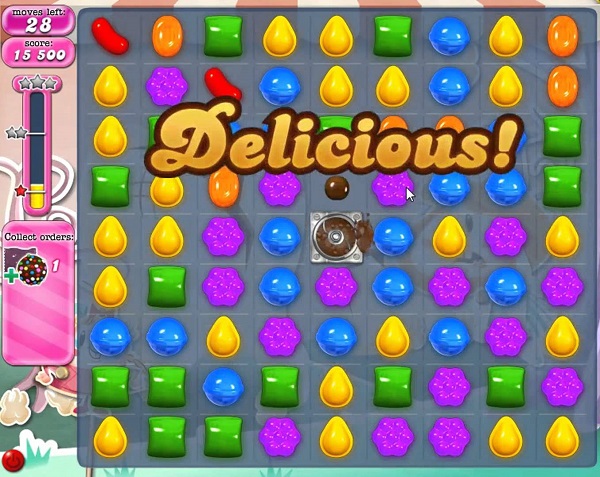When it was recently revealed that Candy Crush Saga creators King had trademarked the word ‘Candy’, and was setting about threatening other developers into dropping it from their own games’ titles, it was widely assumed that it was an effort from preventing other mobile developers from riding the coattails of their confectionery-themed match-three behemoth. Another example of the US and UK trademark offices’ willingness to allow companies to trademark commonly-used English words, it was generally agreed to be little more than the exercising law at its silliest, but no big concern. After all, the mobile space is notorious for being populated with cheesy clones of popular products. Like, say, this one.
But apparently taking dibs on one word wasn’t enough. A document filed on December 27th last year now targets Stoic, developer of the excellent Norse-themed strategy RPG The Banner Saga, for ‘damages’ incurred by their application for a trademark on the game’s title last July. It claims that “The Banner Saga mark is confusingly and deceptively similar to {King’s] previously used Saga marks.” It argues that Stoic’s game is similar enough in content, and will be made available via enough overlapping channels, to confuse King’s current and potential customers “resulting in a likelihood of confusion in the marketplace and damage to [King].”
I swear, if you’ve seen one saga, you’ve seen ’em all.
It’s all become very reminiscent of the adventures of Tim Langdell, the Edge Games founder who trademarked the word ‘Edge’ and whose legal rampage against other companies who had used the word – EA among them – eventually led to the stripping of the trademark and his removal from the board of the International Game Developers Association. It also recalls the legal stoush between Bethesda and Mojang over the title of the latter’s game Scrolls. Neither is this kind of thing exclusive to the games industry: Last October, Nestle finally won a long-fought court battle with confectionery rival Cadbury over the latter’s attempt to stop them using the colour purple to avoid confusion of Nestle products with Cadbury’s famously purple-wrapped Dairy Milk chocolates. Most of these issues are settled out of court, with either minor changes made or ‘coexistence agreements’ made which do not necessitate any name changes.
What remains to be seen is what King are willing to do to protect their trademark. While there’s every chance that this could be wrapped up without excessive amounts of drama, the possibility of a promising young developer having to undergo a difficult change of branding and/or a full-on legal battle, neither of which it could likely afford, is a disturbing notion. The idea of people confusing The Banner Saga with King’s microtransaction behemoth is utterly ridiculous: they’re completely different games, essentially catering to completely different markets. We can only hope that King see the difference between this and their copycats in the mobile market, and take a collaborative stance rather than a destructive one. Perhaps the most ludicrous thing is the legal system that allows such generic words to be ‘owned’ by companies and then necessitates continual action to ensure that these trademarks remain with their owners.

